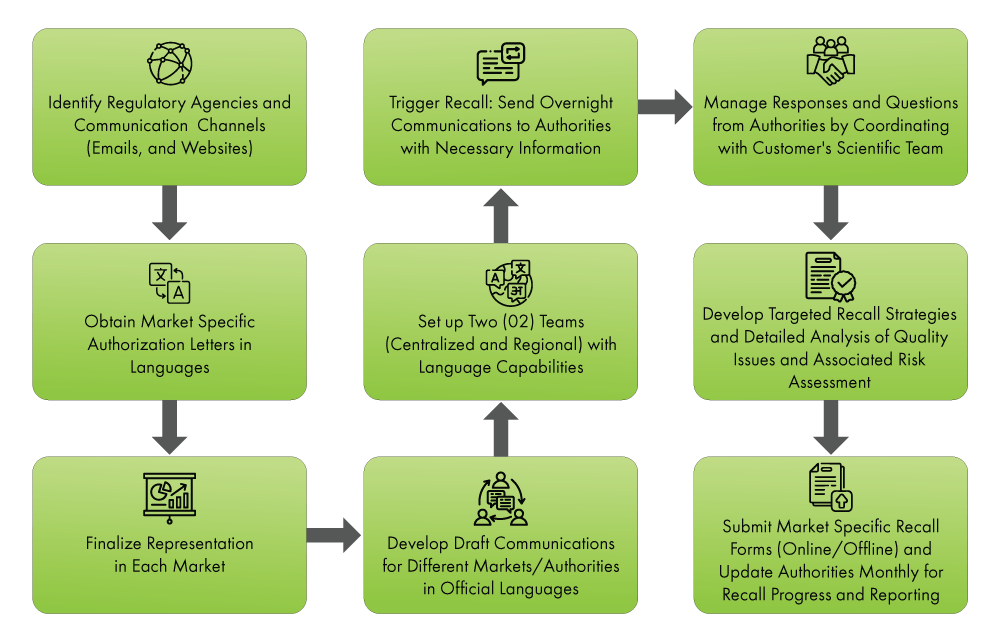
In the chemical industry, consumer product safety reigns supreme. Yet, even the most diligent manufacturers can face unforeseen circumstances that lead to product recalls. Whether it's a labeling error, a potential hazard, or non-compliance with regulations, navigating a recall can be daunting. This guide equips you with the essential knowledge and steps to handle consumer product recalls efficiently and effectively.
Situations Leading to Product Recalls
A product recall occurs when a manufacturer removes a product from the market due to a safety hazard. This can be triggered by various factors, such as:
- Potential Hazard: Usage of hazardous chemicals or any contamination in products.
- Incorrect Labeling: Misleading or inaccurate information leading to misuse or mishandling.
- Non-compliance with Regulations: Failure to meet safety standards set by Regulatory bodies.
Understanding and Facing a Recall
- Immediate Action: Prioritize public safety and halt production/distribution, isolating the affected products. Inform relevant authorities (Regulatory bodies, distributors, and retailers) immediately.
- Root Cause Analysis: Conduct a thorough investigation to identify the root cause of the issue.
- Develop a Recall Plan: Outline clear communication strategies, recall scope, product retrieval methods, and consumer compensation (if applicable). Consider engaging recall specialists for complex situations.
- Public Communication: Issue transparent and timely public announcements via appropriate channels (press releases, websites, or social media). Provide clear instructions for returning or disposing of affected products.
- CAPA: Implement effective Corrective and Preventive Action (CAPA) measures to address the root cause and prevent future recalls. Document and communicate these actions to relevant stakeholders.
Regulatory Requirements
- Proactive Engagement: Maintain open communication with Regulatory bodies. Promptly report non-compliance issues and work collaboratively to find solutions.
- Recordkeeping: Ensure meticulous documentation of all processes, investigations, and CAPA measures. This will be crucial during Regulatory inquiries or investigations.
- Notification of Customers and Distributors: Companies must promptly inform customers, distributors, and retailers of affected chemical products.
- Compliance with Labeling Requirements: Meeting all labeling requirements is crucial, including accurate hazard warnings, handling instructions, and contact details of the manufacturer or distributor.
- Public Communication and Transparency: Transparent communication with the public is vital during recalls. Clear, timely updates about the issue, potential hazards, and corrective actions maintain public safety and trust in the company's products.
Freyr's Operational Approach:

Freyr offers comprehensive product recall services, addressing various challenges involved in establishing and implementing tailored recall strategies, preparing documentation, and communicating with relevant Health Authorities (HAs) across different countries. Freyr also assists in handling public communications on behalf of the companies. Our team of crisis communication specialists stands ready to provide expert guidance, ensuring efficient management and effective mitigation of any recall situation. Don't hesitate to reach out for expert assistance.









